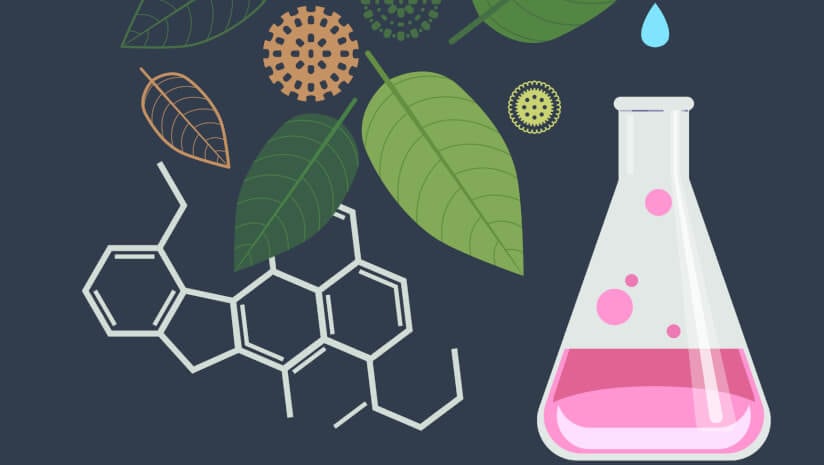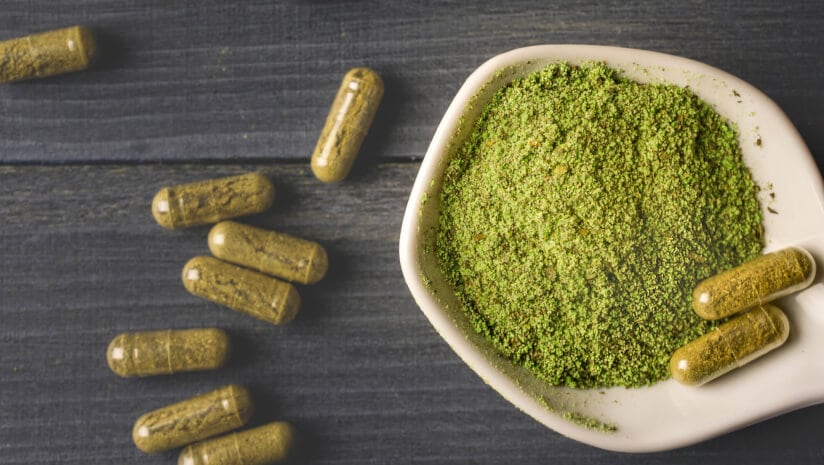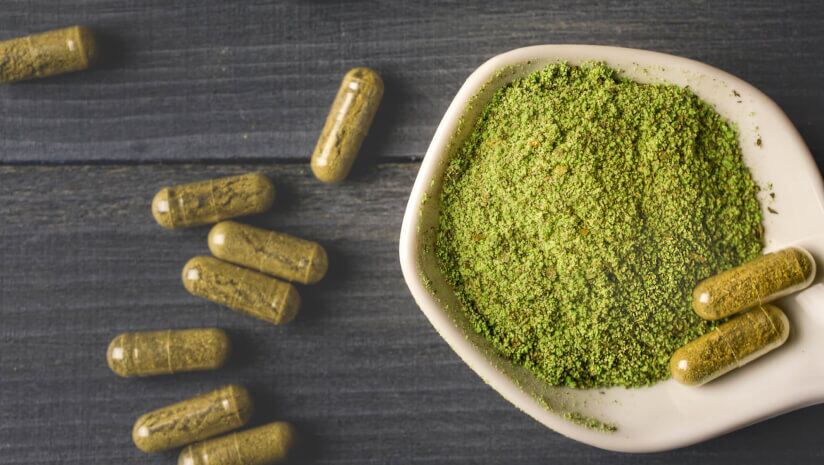The companies, which are based in California, Florida and Texas, were targeted due to the FDA’s growing concern around novel potent opioid products being sold to U.S. consumers online, in smoke shops, gas stations and corner stores.
The letters focus on products that contain 7-OH as an added ingredient or have enhanced levels of 7-OH. Some of these products are considered “adulterated conventional foods or dietary supplements because 7-OH does not meet the relevant safety standard” and “others are unapproved new drugs with unproven claims such as relieving pain and managing anxiety,” the FDA wrote.
“Based on peer-reviewed research from leading experts, highly concentrated or semi-synthetic 7-OH products pose significant public health risks and have been falsely marketed as ‘kratom,’” Dr. Daniel Fabricant, PhD, president and CEO of the Natural Products Association, said in a statement. “These 7-OH products are not legitimate ‘dietary supplements,’ and NPA encourages FDA in collaboration with the U.S. Department of Justice to take any necessary steps to swiftly remove them from U.S. commerce.”
Robert Durkin, partner and co-chair of the regulatory group at law firm Amin Wasserman Gurnani, said he does not know why the FDA waited to send warning letters, as it has been aware of the risks posed by 7-OH for well over a year.
“[Waiting] might be due to the FDA’s entrenched position on kratom and the agency confusing 7-OH with kratom,” he noted. “Even in the 7-OH warning letters, FDA mentioned kratom. Fact is, 7-OH is not kratom. Saying 7-OH is kratom is like saying if someone took coffee beans, brewed a pot of coffee, extracted the caffeine from the coffee, converted it into something that isn’t in coffee and then calling whatever they created coffee. I think the agency let its mishandling of kratom confuse and delay this needed action on 7-OH.”
The letters in focus
The FDA’s letters focused on concentrated 7-OH products such as tablets, gummies, drink mixes and shots, which it said may be dangerous.
In one letter to the CEO of Kansas City-based Shaman Botanicals, the agency focused on several of the company’s 7-OH brands.
“Your product labeling for these products declare 7-hydroxymitragynine (7-OH) as an ingredient…introducing or delivering these products for introduction into interstate commerce violates the Federal Food, Drug, and Cosmetic Act (the Act),” the letter stated.
Besides Shaman Botanicals, the FDA sent warning letters to My Smoke Wholesale, Relax Relief Rejuvenate Trading, LLC dba RRR Trading or EDP Kratom, Thang Botanicals, Inc. dba 7ΩHMZ, 7-OHMZ, or 7OHMZ, Royal Diamond Imports, Inc. dba Roxytabs.com and 7Tabz Retail, LLC.
Last month, the agency also issued a warning letter to Hydroxie, LLC. Among its findings, the FDA determined that the company’s Hydroxie 7-OH Drink Mix product is marketed as containing 7-OH, which is considered an unsafe food additive and therefore adulterated.
Additionally, the FDA reviewed the company’s website and social media account, determining that its Hydroxie line of products are drugs because they are intended for use in the diagnosis, cure, mitigation, treatment or prevention of disease, and/or intended to affect the structure or any function of the body.
For example, Hydroxie’s website included testimonials that said 7-OH users got relief from fibromyalgia, osteoarthritis and multiple sclerosis. Others claimed they overcame daily pain.
Hydroxie and Shaman Botanicals could not be reached for comment prior to publication. The companies have 15 days to respond to the FDA and to address the violations.
Jeff Smith, national policy director for non-profit HART, said the conversation around 7-OH should be centered on regulation, not prohibition. His organization advocates for science-based policy, regulatory transparency, and access to safe, plant-based alternatives to opioids and other pharmaceuticals.
“We are not asking the FDA to take our word for it,” Smith added. “We are asking the agency to consider the data. Independent studies, real-world use and federal monitoring all point in the same direction: 7-OH is being used safely and responsibly by adults across the country.”
HART says there have been upwards of one million monthly users of 7-OH and a review of the FDA’s own adverse event reporting system shows no confirmed deaths from 7-OH alone and just three serious adverse events. In contrast, it says more than 200 deaths have been linked to other kratom-related products during the same period.
“This emerging data strongly suggests that 7-OH, when produced and used responsibly, has a significantly lower risk profile than many kratom products that are not being targeted by the FDA,” Smith added.
Kratom v. synthetic ‘kratom’
7-OH appears in low levels in the kratom leaf, part of a tree species grown in Southeast Asia. A man-made alteration to the leaf’s naturally occurring alkaloids can significantly heighten 7-OH levels. Synthetic 7-OH is up to 13 times more potent than morphine at opioid receptors, significantly increasing the risk of dependence and overdose, according to Paula Brown, director of the BC Institute of Technology’s Natural Health and Food Products Research Group.
Matthew Lowe, executive director of the Kratom Coalition, said his organization was the first major group to highlight the issue of synthetic ‘kratom’ and express major concerns.
“These concerns have been ratified more broadly by the scientific community,” he said. “There has been a lot of media coverage on it, and there’s been a slew of consumer issues related to these products, either people being tricked into thinking its natural kratom, developing an intense addition, or knowing what they’re getting into and taking it… It’s always been our contention that these products have been unapproved drugs.”
Dr. Sibyl Swift, PhD, chief science officer with Johnson Foods, said she hopes this is the first step toward removing synthetic ‘kratom’ from the market. Her company has submitted two new dietary ingredient notifications from natural kratom powder, completed a human clinical study on kratom powder and extract and has additional studies planned.
“We have seen a growing proliferation of 7-hydroxymitragynine products masquerading as kratom,” Swift said. “These products are derived from synthetic processes with no benefit and a tremendous potential to harm consumers. FDA’s actions are a welcome step toward protecting consumers from these dangerous and addicting products.”



